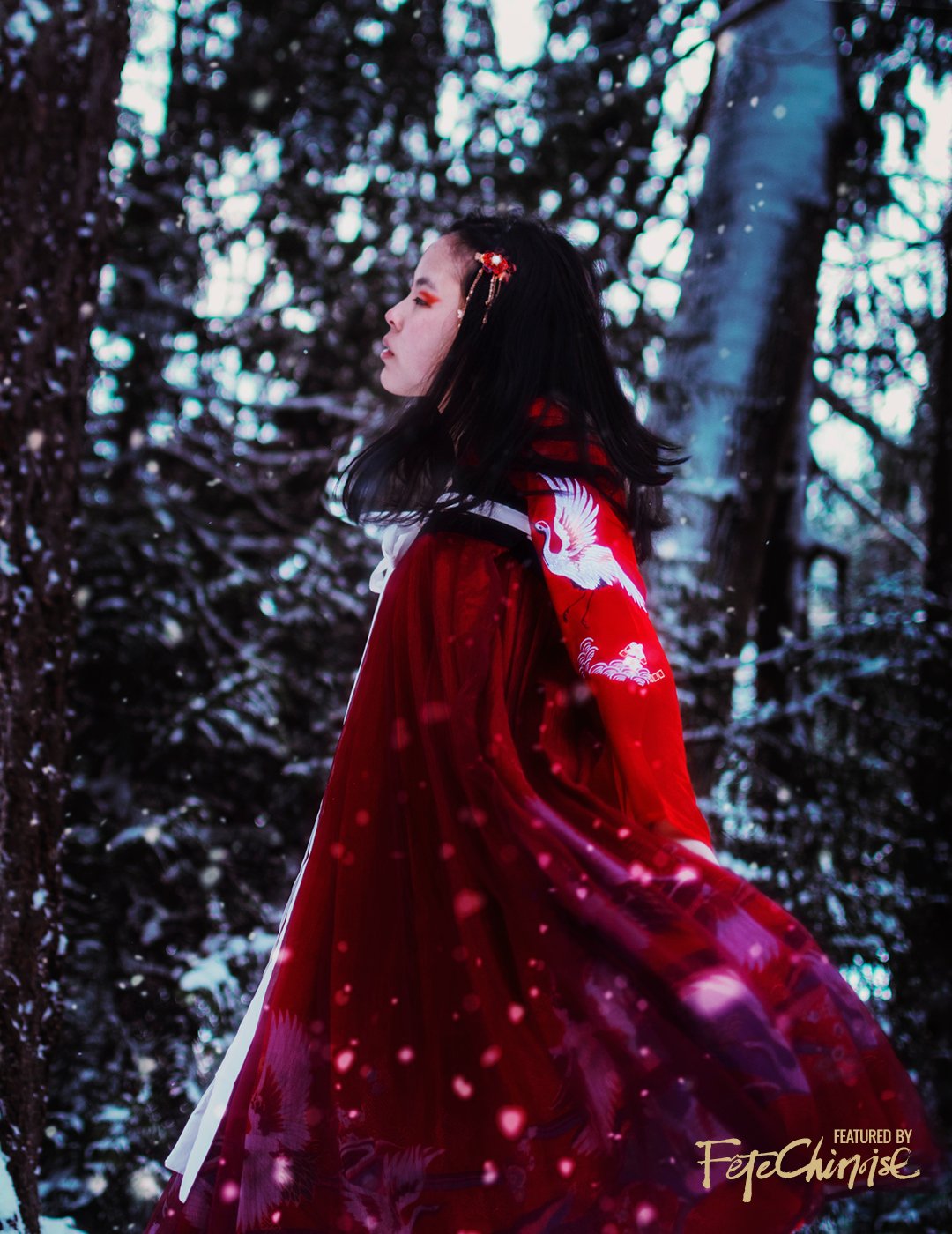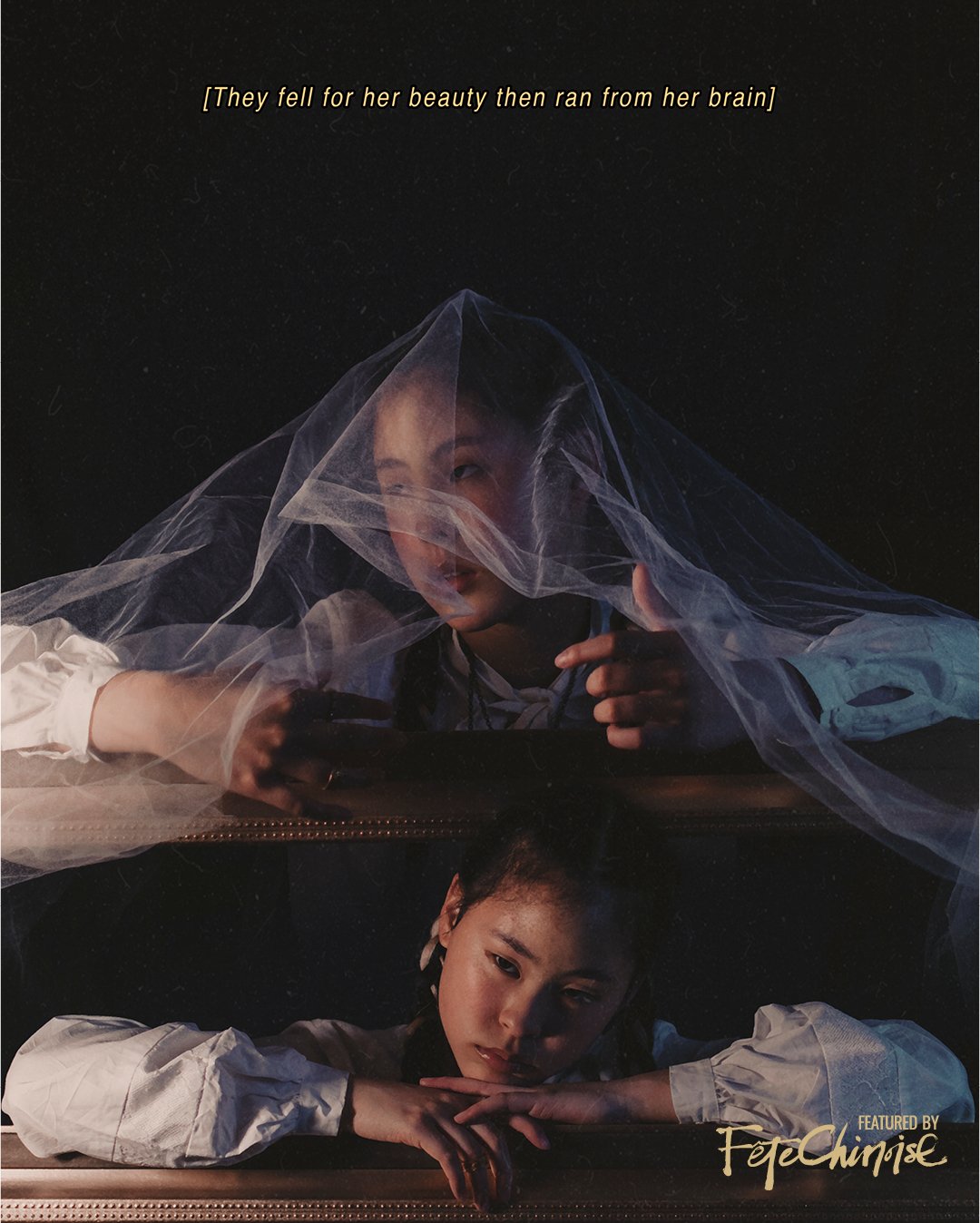Discovery With Her Camera: Sophia Chew
Written by Yinsey wang
Photographs are courtesy of the Artist, Sophia Chew @shots_by_sophia
Seattle-based Sophia Chew is a teenage Renaissance woman. If juggling high school, a part time job at a bookshop and overcoming adolescence wasn’t enough, she is also taking the internet by storm. Whilst deftly learning everything under the sun, Sophia has warmed her way into my heart as one of my favourite photographers and personalities online. How, you ask? Her visually-engaging videos, incredible self-portraits and her hilarious sense of fandom-serving humour (which not only resonates with those in her age group, but also beyond!). In addition, she is laying the foundations for her own short film, Precious, which is about “embracing the beauty of culture” with her sister Madison Chew.
Currently 18 years of age, Sophia had an interest in the arts since childhood. It was, however, the pandemic that really pushed her into creating pieces when she was at home. In 2015, Sophia’s father gave her a Nikon D60 and lent her his camera gear. Prior to the pandemic, this camera was a constant companion, making an appearance everywhere on trips, hang-outs with friends, and neighbourhood walks. At first, Sophia relied heavily on default automatic settings because that is all she knew at the time. Yet, during the first lockdown, Sophia says she “picked up the camera again and taught myself the basic functions of a DSLR, posting my progress along the way”. As she started to base work off the artists she admired, she became more inventive, with her new hobby becoming a mainstay and attracting legions of fans. It is no surprise that through the quality of her work, she has also secured sponsorship deals with big players such as Warner Bros.
Despite sponsorships being client-oriented, Sophia is often trusted to unleash her creativity with limited restrictions. She values this sense of freedom and independence. Although many projects and client work may vary, she finds that her “process stays pretty consistent”. Sophia notes that “pieces of my projects can be personal, so whenever I take something on, I always approach it in a way where I can feel personally connected to it”. She managed to inject her own brand co-mingled with ethereal dreamscapes, elegant poses and magical vibes into everything she does.
Sophia taps into the rich tapestry of movies and books that she consumes in her free time. She loves taking on their characters, particularly as she grows “really attached” to some. When asked to choose her favourite character, she struggles but concedes thatt “Juliette Cai from Chloe Gong’s These Violent Delights will always be one of my favourites. She is this super cool Chinese, 18-year-old, dagger wielding, stereotype defying character, and I want to be her so badly.” By basing some works on different sources, she is challenged to push herself in making something unique and striking. When she is inspired by a certain something, she will record this by writing it down or when reading, using a sticky note to catalogue the page. A massive music fan, she also draws ideas from poetic lyrics such as those of Taylor Swift and Hozier.
sponsored by ferris wheel press.
Inspired by people and media in her work, these elements also impact Sophia as a person. She wishes “offer something positive in the world” and finds herself moved by those going through struggles similar to her own. Sophia’s mother has been a source of confidence for Sophia to put herself out there. Given her mother participated in beauty pageants when she was around the same age as Sophia, this helped Sophia feel comfortable in her own skin. When citing some key creative role models, she speaks fondly of Rina Yang (her favourite cinematographer) and Daniel Cretton (who directed one of her favourite Marvel movies). It was a big moment when Daniel Cretton followed Sophia on Instagram.
Sophia is also, through her work, creating the representation that I personally craved so much when growing up. I can sense that her self-portraits and filmography must touch so many young Asian women – I can certainly remember my time during those years, navigating the harsh waters of being a minority and the innate desire to be seen. With Chinese and Korean heritage, Sophia advocates for showcasing variety in the narratives being told. She feels that “greater diversity in storytelling is important in order for diverse voices to be heard”. Sophia values “keeping an Asian representation-lens is the most effective use of my voice”. She finds that “there is so much beauty and richness in culture” and “being able to create the representation that I didn't see when I was younger is a great feeling”.
I was so touched by Sophia’s work and mission that I felt compelled to show my support in some way. I thought what would be meaningful would be to send Sophia a hanfu that I had already used for a self-portrait of my own. Asked about her favourite piece she has completed, Sophia chose the piece she created in response to the book Six Crimson Cranes by Elizabeth Lim. I am delighted by this answer, as in this piece, Sophia is wearing the hanfu that I sent her. Sophia shares that the book is one of the first where she saw “a girl I could compare myself to on the cover”. She remembers picking it up and thinking “hey, I could actually look like that” and then when she read it, loved it. So, she created a photoshoot recreating the cover. For Sophia, “reading about a girl who was my age and looked like me was such a special thing to experience, I wish I had felt it earlier. For now, the photo with all the cranes surrounding me is a reminder of progress for Asian representation in mainstream media”.
In connecting with her heritage, Sophia has gone down all sorts of “rabbit holes of research and discovery”. She reflects on her upbringing, as she ponders how “my grandparents speak Cantonese and Korean and I've grown up eating a lot of Asian food, however, I go to a majority white school where feeling accepted can be difficult at times”. Once Sophia started embracing her cultural background outside of school, she received a “positive response online”, and to her, “that definitely helped me loosen my concerns on what the people at my school would think of me”. She reflects how her “identity as a Chinese Korean-American is such a large part of me now, it feels almost impossible to separate that from my work, self-portraits or not. I’m constantly thinking of ways to incorporate some sort of positive representation into the projects I work on”.
Sophia is also grateful for her ability to create, attributing affection for her “identity” and “amazing parents who are allowing me to pursue a creative path and supporting me enthusiastically”. Although they may not understand everything she does, Sophia appreciates that they “can see my passion and my drive despite it not being the most traditional and stable route”.
In terms of Sophia’s future aspirations, her dream collaboration would be on a set for a Netflix original. She says “I know that being a high schooler limits my abilities to work on projects as large as that but film sets are a place I feel welcomed and I would love to add my creative voice onto something that millions of people can watch”. She finds that “a lot of my work is independent currently, and working in a team environment with other creatives would be a dream”. Netflix has created some of Sophia’s favourite shows that highlight underrepresented communities, such as Heartstopper, Shadow and Bone, and The Umbrella Academy. She notes that “hopping straight to the role of cinematographer is a bit of a leap”, but she is happy to grab coffees, hold lights, and run equipment around a stage if Netflix needs her to. She speaks directly to Netflix “just say the words and I’m there!”. I hope they get the message, except with my added comment that this prodigy needs to have her own show!
About the writer, Yinsey Wang
A lawyer by profession, but a creator at heart, Yinsey Wang is a UK-based, multi-faceted hobbyist. Her primary outlet is modelling fairytale and fantasy concepts with like-minded creatives, but she occasionally engages in self-portraiture, writing, costume and prop-making and painting. Inspired by ancient history and myth from various cultures, Yinsey loves incorporating storytelling and building characters in her work.
sponsored by ferris wheel press.
















Every special moment deserves a look that feels effortless, stylish, and a little unforgettable. From sun-drenched garden parties to sparkling evening soirées, this chapter brings you curated outfits, accessories, and styling tips to help you shine with confidence. Think romantic florals, bold statement pieces, and modern twists on classic elegance: each look designed to celebrate the occasion, the season, and, most importantly, your own unique style.